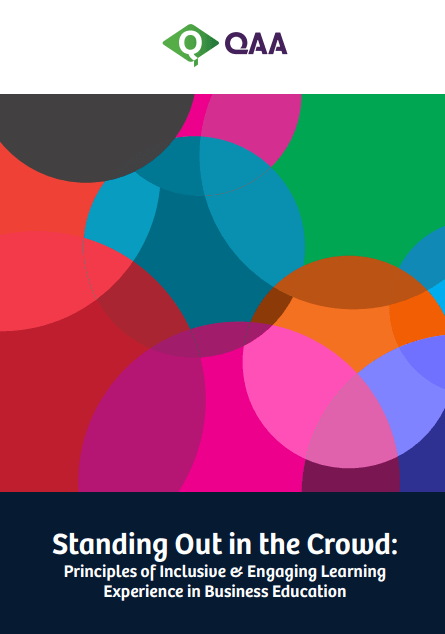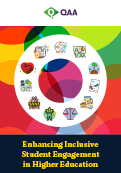
Final report: standing out in the crowd
Publication date: 26 Sep 2025
This report, from a QAA Collaborative Enhancement Project, examines a multifaceted concept of students engagement in business education. We share findings from a review of academic literature as well as empirical research on how student engagement plays out across a wide range of educational contexts across nine countries. By learning from global perspectives and centring diverse student voices, we explore inclusive, meaningful learning experiences.
| Format: | |
|---|---|
| Size: | 5.73 MB |
